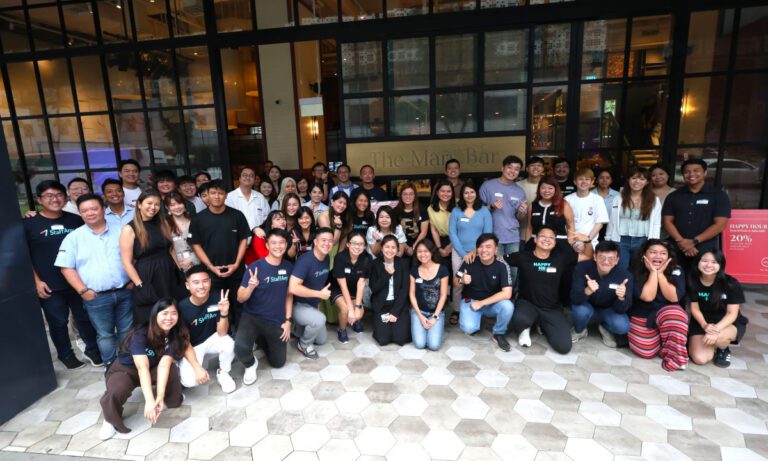The maximum hours allowed to work per week in Singapore are regulated by the Employment Act, which aims to provide workers with fair working conditions and ensure their well-being. The act specifies the maximum number of hours an employee can work in a week, including breaks, and overtime pay. Employers need to be aware of these regulations to avoid penalties and ensure a positive working environment for their employees.
In this article, we will explore the work week and the maximum hours allowed to work per week in Singapore based on the Employment Act, as well as overtime pay and regulations.
What is the Employment Act in Singapore?
The Employment Act is Singapore’s main labour law. It provides for the basic terms and conditions at work for employees covered by the Act. You are covered if you are an employee, either local or foreign working under a contract of service with an employer.
An employee can be employed in the following terms:
- Full-time
- Part-time
- Temporary
- Contract
An employee can be paid on the following basis:
- Hourly
- Daily
- Monthly
- Piece-rated
However, you are not covered if you are employed as a:
- Seafarer
- Domestic worker
- Statutory board employee or civil servant
In addition, All employees under a contract of service with an employer are covered, but there are exceptions. For example, Part IV of the Act does not cover managers or executives having executive and supervisory functions.
Part IV of the Employment Act, which provides for rest days, hours of work and other conditions of service, only applies to:
- A workman (doing manual labour) earning a monthly basic salary of not more than $4,500.
- An employee who is not a workman, but who is covered by the Employment Act and earns a monthly basic salary of not more than $2,600.
Understanding the Work Week

The work week in Singapore is defined as a period of seven consecutive days, starting from Sunday and ending on Saturday. This period is used to calculate the maximum hours of work that an employee is allowed to perform in a week. In Singapore, the work week is regulated by the Employment Act, which outlines the rights and responsibilities of both employers and employees.
Employers must ensure that their employees do not work more than the maximum number of hours allowed per week, which is 44 hours, including all forms of work such as overtime, time off in lieu (TOIL), and paid time off (PTO). This means that if an employee works more than 44 hours in a week, the excess hours are considered as overtime.
Under the Employment Act, employers must ensure that their employees do not work more than the maximum number of hours allowed per week. This helps to ensure that employees have adequate time to rest and recover between work sessions, promoting their well-being, and preventing burnout. Employers must also provide their employees with adequate rest breaks during working hours.
In addition, employers must keep accurate records of the number of hours their employees work each week, including all forms of work such as overtime, TOIL, and PTO. This helps to ensure that employees receive proper compensation for the overtime work they perform and can also assist employers in monitoring their compliance with the maximum number of hours allowed to work per week.
Read More: A Guide to Annual Leave Entitlement in Singapore
Maximum Hours Allowed to Work per Week in Singapore

If you are covered under Part IV of the Employment Act, your hours of work are regulated and you are entitled to breaks, overtime pay, and rest day. However, Part IV of the Employment Act only covers employees under a contract of service with an employer and does not cover managers or executives.
Normal Hours of Work
Working hours specified in a contract of employment are the hours agreed upon by the employee and employer.
For regular work arrangements, the agreed upon working hours are as follows:
- If an employee works 5 days or fewer per week, their contractual hours are up to 9 hours per day or 44 hours per week.
- If an employee works more than 5 days per week, their contractual hours are up to 8 hours per day or 44 hours per week.
For alternative work arrangements, the agreed upon working hours are as follows:
- If an employee works less than 44 hours in alternating weeks, their contractual hours are up to 48 hours per week, with a cap of 88 hours in any consecutive two-week period.
- For example if in week 1 they work 40 hours, in week 2 they work 48 hours, and in week 3 they work 40 hours, the average for weeks 1 and 2 is 44 hours and the average for weeks 2 and 3 is 44 hours.
- If an employee works shifts of up to 12 hours per day, their contractual hours are an average of 44 hours per week over a continuous 3-week period.
- For example, if in week 1 they work 40 hours, in week 2 they work 44 hours, in week 3 they work 48 hours, and in week 4 they work 40 hours, the average for weeks 1, 2 and 3 is 44 hours and the average for weeks 2, 3, and 4 is 44 hours.
Note: If an employee who is not shift workers agree to work up to 12 hours per day while not exceeding an average of 44 hours over any 3 consecutive weeks, they must:
- Provide written consent
- Be informed of the provisions of sections 38 and 40 of the Employment Act
- Be aware of their daily working hours, the number of workdays per week, and their weekly day off.
Read More: 8 Types of Allowance for F&B Employees in Singapore
Maximum Hours of Work
As an employee, it is not permissible for you to work more than 12 hours in a day. However, your employer may request for you to work beyond the 12-hour limit in the following cases:
- In the event of an accident (or potential accident)
- When work is deemed critical to the survival of the community, national defence, or security
- When there is a need for urgent repair or maintenance of machinery or equipment
- When there is an unforeseeable disruption in work.
Read More: Basic Salary vs Gross Salary: What’s the Difference?
Overtime Pay and Regulation
If an employer wants their employees to work more than 12 hours a day, up to a maximum of 14 hours, they must obtain an exemption for overtime. Employees can only work a maximum of 72 hours of overtime in a month, but the employer can apply for an exemption if they need the employee to work more than 72-hour overtime limit in a month.
Hours worked on rest days or public holidays are not included in the 72-hour overtime limit, except for hours worked beyond the standard working hours on those days. These extra hours are included in the 72-hour limit.
Thus, All works done in excess of normal working hours must be paid out at least 1.5 times the hourly basic rate of pay of the employee, within 14 days after the last day of the salary period. For overtime on a Rest day or Public Holiday (PH), remember to add Rest/PH pay accordingly. Overtime pay on rest days or public holidays is calculated as follows:
(Hourly basic rate of pay × 1.5 × Number of overtime hours worked) + (Pay for rest day or public holiday)
Managing your employees’ work hours and overtime can be a complex and time-consuming task. But with StaffAny’s timesheet software, you can streamline the process and ensure compliance with Singapore’s Employment Act regulations. Our software tracks employee working hours and calculates overtime pay accurately and efficiently. Say goodbye to manual calculations and hello to easy, worry-free management of your workforce. Try StaffAny‘s smart timesheets today and take control of your business’s compliance and efficiency.






